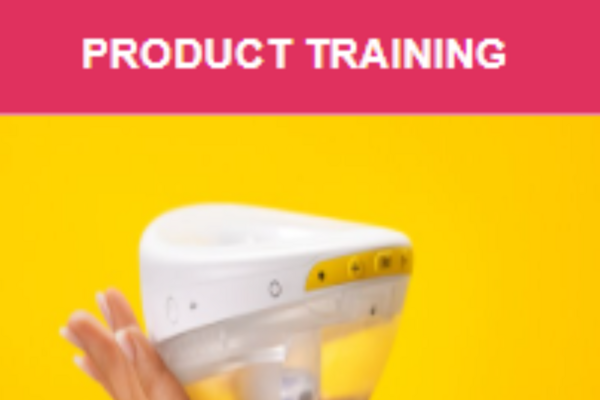
Non-profit milk banks provide a safe and affordable source of pasteurized donor human milk to premature infants in the NICU setting. Pediatric outpatients with formula intolerance and other serious medical conditions may also benefit from donor milk. Non-profit milk banks use Holder pasteurization to deactivate bacterial and viral contaminants while maintaining bioactive factors that help shape a healthy infant microbiome. Watch this webinar by Summer Kelly MS, RN, IBCLC to gain a behind-the-scenes look at a nonprofit milk bank, where science, safety, and ethics converge to ensure equitable access and community engagement. Read more

descobrir-o-portefolio-da-medela-para-apoiar-a-amamentacao Read more

Welcome to this Magic InBraTM breast pump scientific product insight for Healthcare Professionals. Medela is excited to launch the third generation breast pump: Magic InBraTM with FluidFeel Technology.TM This course aims to give comprehensive information about the product including, its background, user information and resources. Note: Product may not be available in all regions, for more information: Contact Us: Get Support or Inquire Today | Medela Read more

Welcome to the foundation course on the physiology of human lactation. This course aims to develop a basic understanding of the anatomy and physiology of the lactating breast and how healthy breastfeeding infants remove milk during breastfeeding. This course is 60 minutes in duration and divided into 7 lessons for you to complete. Work through the course at a time, a place and a pace that best suit you. At the end of this course you will check your understanding. Additional resources and learner competencies are available for you to download and complete with your clinical practice educator. This training material includes anatomical illustrations and images of the breast. This is course 1 of 4 foundational modules: Foundations of human lactation in healthy mothers and healthy term breastfeeding infants Value of colostrum – nurturing infant health drop by drop Proactive lactation support Best practices for effective lactation initiation and coming to volume in the NICU Read more

Dette detaljerte e-læringskurset gir deg en trinnvis veiledning i hvordan du setter opp Symphony®-brystpumpen, inkludert bruk av pumpesett for oppsamling av brystmelk. Du vil lære når du skal velge initierings- og 2-faseteknologi for effektivt å starte, bygge opp og vedlikeholde melkeproduksjonen. Dette kurset er en del av en opplæringspakke som er utviklet for å øke kunnskapen og selvtilliten din i bruken av Symphony®-brystpumpen. Read more

Denna detaljerade eLearning-kurs ger en steg-för-steg-guide för inställning av Symphony®-bröstpumpen, inklusive användning av bröstmjölksuppsamlingsset. Du får lära dig när du ska välja initierings- och 2-fas-teknik för att effektivt initiera, bygga upp och upprätthålla mjölkproduktionen. Kursen är en del av ett utbildningspaket som är utformat för att öka din kunskap och trygghet i användningen av Symphony®-bröstpumpen. Read more
Shopping Cart
Your cart is empty
